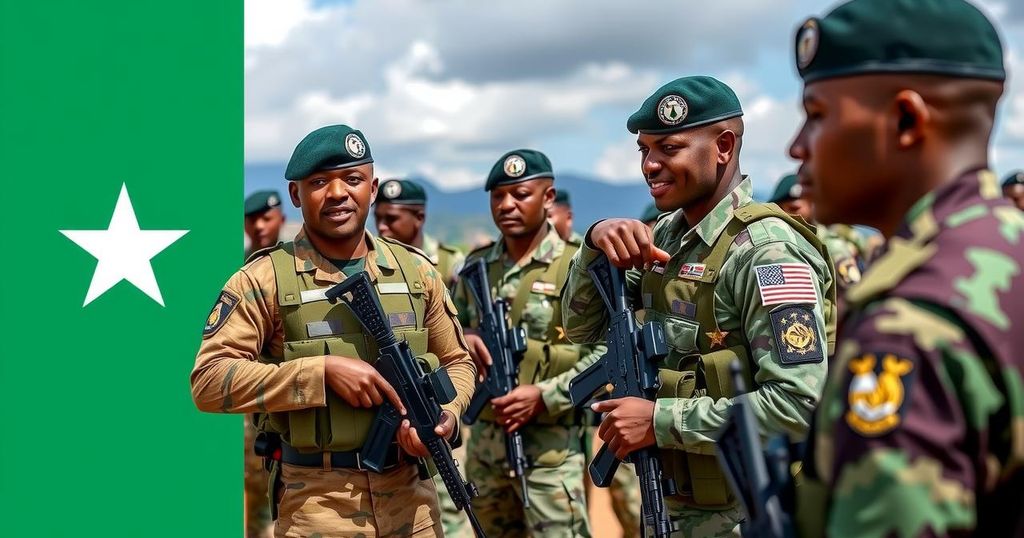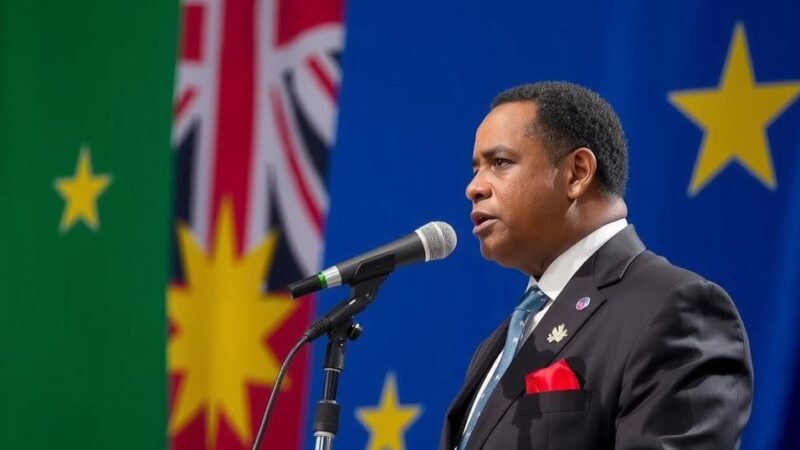The U.S. is advancing plans to convert the Kenya-led multinational force in Haiti into a U.N. peacekeeping mission due to escalating gang violence that has disrupted air travel in the capital, Port-au-Prince. The U.N. trust fund has significant shortfalls, and only a fraction of the proposed police force is deployed, raising concerns about the efficacy and funding of the intervention.
The United States is intensifying efforts to transform the Kenya-led multinational force in Haiti into a United Nations peacekeeping mission in response to escalating gang violence that has led to the shutdown of air traffic in Port-au-Prince. Following a proposal in early September, the U.S. aims to secure ongoing funding for the force, struggling amid escalating attacks from gangs who reportedly control a significant majority of the capital. The situation worsened recently after Haiti’s transitional council dismissed the interim prime minister, provoking a surge in violence from gangs that have dramatically intensified their activities, including an attack that closed the main airport. While the U.S. is attempting to gain unanimous support from the U.N. Security Council for a draft resolution to initiate the transformation, countries like Russia and China have expressed reservations. The multinational force was intended to include 2,500 international police, yet only around 430 have been deployed. Contributions to the U.N. trust fund that finances this multinational effort remain critically inadequate, with significant shortfalls anticipated for the costs associated with fielding a robust force. The situation in Haiti remains precarious, with allegations of a substantial power vacuum and increased gang-related violence following the 2021 assassination of President Jovenel Moïse.
The instability in Haiti has become increasingly pronounced, particularly following the assassination of President Jovenel Moïse in 2021, which has exacerbated gang violence and disorder. Requests for assistance have led to consideration of foreign military interventions, including a Kenya-led multinational force aimed at supporting the Haitian police. The proposed transition to a United Nations peacekeeping mission is seen as a possible avenue to provide more secure funding and a structured response to the rising turmoil. A historical context reveals a troubled record of foreign interventions in Haiti, marked by various failures and allegations of misconduct, raising concerns about the effectiveness of such missions moving forward.
In summary, the U.S. is advocating for the transition of the Kenya-led force in Haiti to a U.N. peacekeeping operation amid urgent needs created by rampant gang violence. Despite the U.S. efforts to garner support, opposition remains from key members of the U.N. Security Council, complicating the intended transition. The under-resourced and under-deployed nature of the current force illuminates a pressing need for sustained international commitment to restore order in Haiti, while the historical backdrop brings about skepticism toward foreign military involvement.
Original Source: apnews.com






